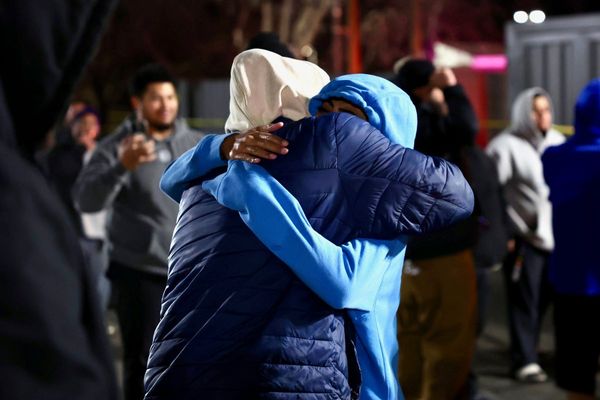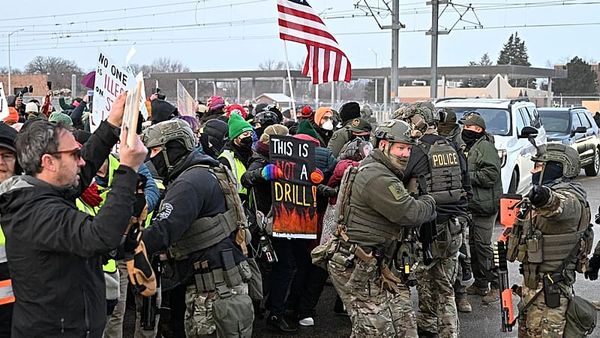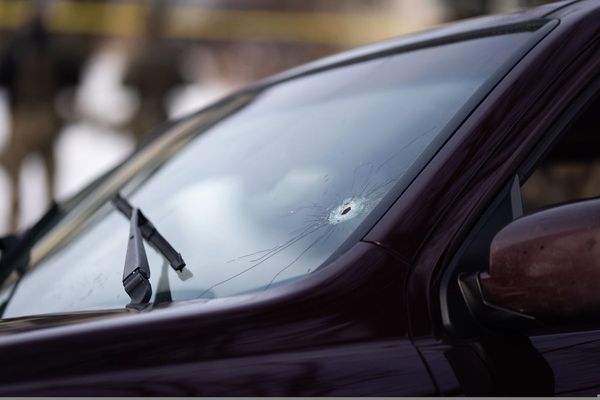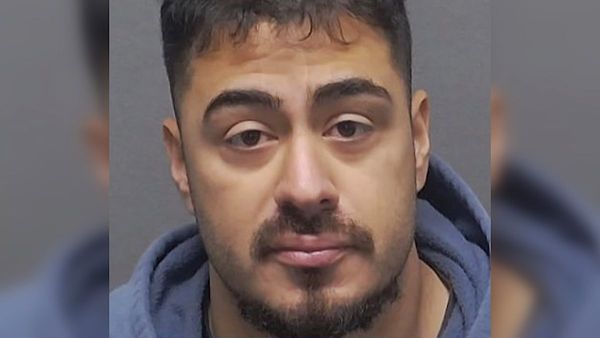
Ukraine said its forces had repelled Russian assaults along the length of the front line on Thursday on the eve of the war's anniversary, as President Vladimir Putin, empty-handed after a bloody winter offensive, talked up Russia's nuclear arsenal.
After a series of strident speeches in the runup to the anniversary of his invasion, Putin announced plans on Thursday to deploy new Sarmat multi-warhead intercontinental ballistic missiles this year. Earlier this week he suspended Russia's participation in the START nuclear arms control treaty.

Russia would "pay increased attention to strengthening the nuclear triad," Putin said in remarks released by the Kremlin, referring to nuclear missiles based on land, sea and in the air.
Ukraine and its Western allies have brushed off the nuclear talk as a diversion from a failing Russian military campaign on the ground, a year after Putin launched the biggest land war in Europe since World War Two.
The last weeks have seen Russia mount infantry assaults across frozen ground in battles described by both sides as the bloodiest of the war.

At a Ukrainian tank park near Bakhmut, the small eastern city that has become Russia's main target, constant explosions could be heard echoing in the distance.
"If we give up Bakhmut, everything else will get even more complicated. We can't give it up, under no circumstance. We will hold through," Junior Sergeant Oleh Slavin, a tank operator, told Reuters. "We are in place for now and trying to get all the territory back."
The U.S. Embassy in Ukraine issued an alert to Americans in the country about "an ongoing heightened threat of missile attacks" across Ukraine including Kyiv and the Kyiv region.

Western officials said Russia had planned an offensive to capture new territory ahead of the anniversary, using hundreds of thousands of reservists conscripted in recent months to give Putin a victory to announce.
Moscow's forces have made progress trying to encircle Bakhmut, but have failed to break through Ukrainian lines to the north near Kremmina and to the south at Vuhledar, where they have taken heavy losses assaulting across open ground.
Ukrainian forces repelled 90 Russian attacks in the northeast and east over the past 24 hours, the military said early on Thursday. Ukrainian military spokesperson Brigadier General Oleksiy Gromov said Moscow was trying to use its advantage in troop numbers to exhaust Kyiv's forces.

"The enemy, despite significant losses, does not abandon attempts to surround Bakhmut," he said.
Three ambulance workers trying to evacuate people from their homes in the Russian-controlled city of Donetsk in eastern Ukraine were killed by Ukrainian shelling on Thursday, a Russian-installed official in the region said.
Reuters could not verify the fatalities. There was no immediate comment from Ukrainian authorities.

Russia's defence ministry said in a morning bulletin that its forces fired artillery at Ukraine military units in areas including Vuhledar in the south of the Donetsk region. The bulletin made no mention of Bakhmut.
Ukraine has shut some schools for the war's anniversary in anticipation that Moscow might launch long-range missile attacks to mark the date. But Kyiv officials said they believe Moscow no longer has the capability for a dramatic show of force.
"Nothing unusual will happen. Usual (Russian) effort... A small missile strike is planned," military intelligence chief Kyrylo Budanov told the Ukrainska Pravda news website. "Believe me, we have experienced this more than 20 times."

'BRUTAL FACTS'
Western powers have provided Ukraine with billions of dollars in weapons since Russia invaded. The United States and NATO have accused China of considering supplying arms to Russia, a strategic partner of Beijing. China dismissed the accusation.
In New York, China's deputy U.N. Ambassador Dai Bing told the U.N. General Assembly that one year into the war "brutal facts offer an ample proof that sending weapons will not bring peace."
Adding that "nuclear weapons cannot be used, nuclear war cannot be fought," Dai said China was ready to help bring peace.
With no major battlefield victories to report in time for the anniversary, Putin has instead turned to nuclear rhetoric, announcing in a major speech on Tuesday that Russia would suspend participation in the New START arms control treaty.
U.S. President Joe Biden, who upstaged Putin this week by journeying unannounced to Kyiv and addressing a crowd in Warsaw, called the suspension of START a "big mistake" but said on Wednesday: "I don't read into that that he's thinking of using nuclear weapons or anything like that."
The RS-28 Sarmat missiles, dubbed "Satan 2", whose deployment Putin announced on Thursday, were first unveiled in 2018 and were already supposed to have been deployed last year.
Putin also promised to produce more hypersonic missiles, which fly too fast to be shot down.
Echoing similar statements by Putin, Russian Defence Minister Sergei Shoigu accused the West of using Ukraine to try to break up Russia, the world's largest country by territory, but he said any such attempt would fail.
Russia still holds nearly a fifth of Ukraine, despite losing territory in major battlefield setbacks after failing to capture Kyiv at the outset of its "special military operation".
Tens of thousands of Ukrainian civilians and troops on both sides are believed to have died in the war. Russian forces have destroyed Ukrainian cities and set millions of refugees to flight.
The U.N. General Assembly is expected to mark the eve of the invasion's anniversary by passing a resolution demanding a halt to the conflict. Ukraine hopes to deepen Russia's diplomatic isolation by securing yes votes from nearly three-quarters of countries. Moscow, which says the invasion was justified by threats to its security, calls the text biased.
U.N. Secretary-General Antonio Guterres on Wednesday denounced the invasion as a violation of the U.N. Charter.
"We have heard implicit threats to use nuclear weapons. The so-called tactical use of nuclear weapons is utterly unacceptable," Guterres said. "It is high time to step back from the brink."
(Reporting by Reuters bureaux; Writing by Peter Graff and William Maclean; Editing by Nick Macfie, Andrew Heavens and Daniel Wallis)







